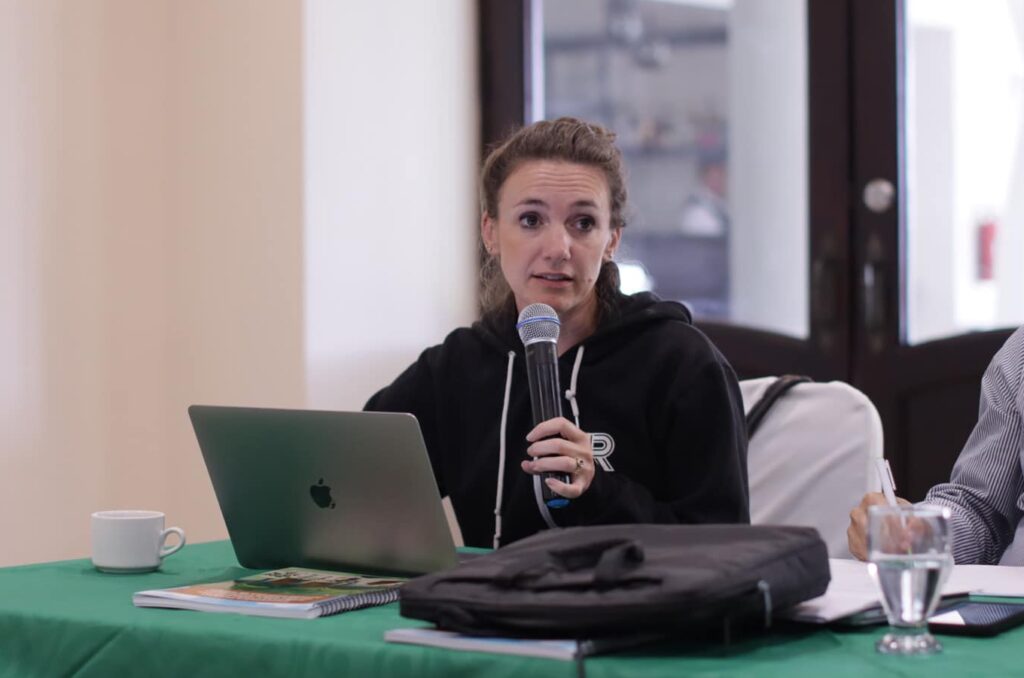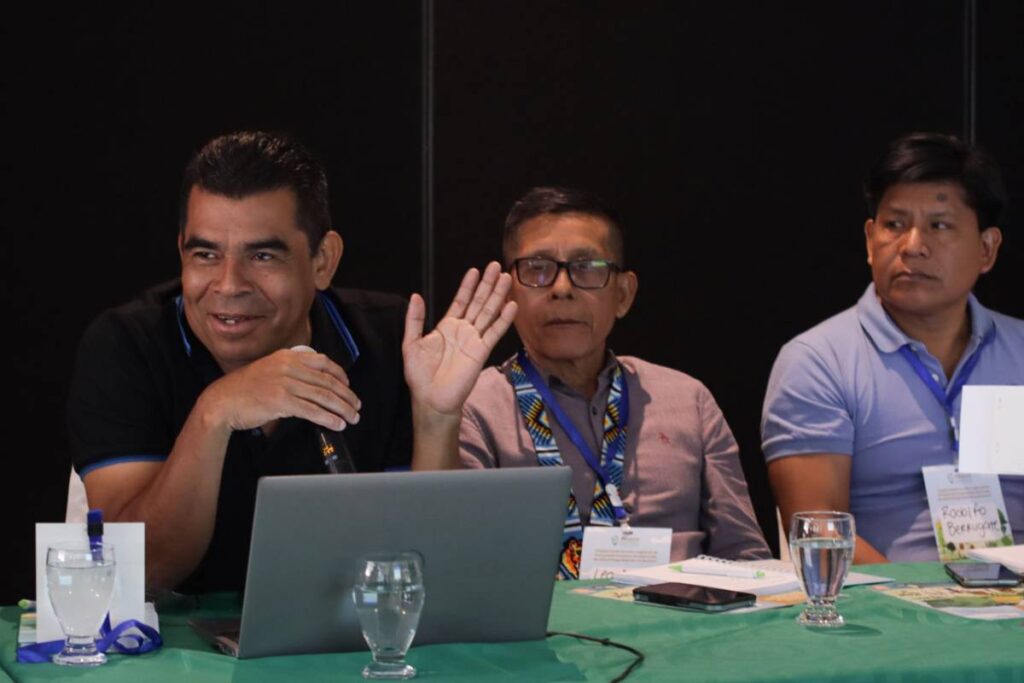- The Mesoamerican Alliance of Peoples and Forests convened in El Salvador to further equitable practices in carbon markets, emphasizing the rights of Indigenous peoples and local communities.
- They also issued a declaration emphasizing the need to uphold and protect community rights in the market.
- RFUS facilitated strategic planning sessions and provided key resources, tools, and advice to support the meeting’s objectives.
The Mesoamerican Alliance of Peoples and Forests (AMPB)—in collaboration with Rainforest Foundation US (RFUS) and Fundación PRISMA—convened a meeting on March 13 and 14 in San Salvador, El Salvador to set the stage for a united vision for strengthening the integrity of carbon markets in the region. The meeting entitled “Exploring the Regional Route for a High Integrity Carbon Market in Mesoamerica” brought together representatives and technical experts from AMPB’s Indigenous peoples and local communities, AMPB Secretariat, and allied organizations. Participants engaged in strategic planning aimed at integrating communities’ experiences, challenges, initiatives, and proposals to reinforce the respect for their rights in the market mechanisms that are increasingly exerting their influence in the region.

“This convening represented a critical effort to direct carbon markets toward more equitable practices that acknowledge and reinforce the rights of Indigenous peoples and local communities managing forest resources. For these communities, particularly those represented by AMPB, the meeting provided an essential space to express their concerns, exchange experiences, and influence policy impacting their lands and livelihoods,” said Maryka Ives Paquette, Rainforest Foundation US Senior Policy Manager.
RFUS facilitated strategic planning sessions and provided information on resources, tools, and opportunities for engagement. Our longstanding partnership with AMPB has been instrumental in shaping these discussions.
A significant outcome of this meeting was the release of the joint statement “Towards Fair and Transparent Carbon Markets and REDD+ Processes.” This declaration emerged at a crucial moment as governments and private sectors increasingly advocate for nature-based solutions, including carbon markets and REDD+ initiatives originally developed without adequate input from the communities leading forest protection efforts on the ground. The declaration calls for these initiatives to not only take effective measures to combat global warming but also to honor and protect community rights.
AMPB’s declaration highlights the need to critically reevaluate these mechanisms, question their effectiveness and accountability, and stress the inclusion of social and rights-based considerations that have traditionally been neglected. The group also announced plans to develop a comprehensive guide on rights and transparency in carbon markets and REDD+ initiatives, alongside launching an observatory to monitor these markets. This initiative aims to ensure that safeguards and corresponding transparency mechanisms are being effectively implemented, marking a decisive move towards equitable and respectful carbon market and REDD+ practices.

“This event allowed us to strengthen the dialogue with our territorial leaders from the region about our demands and rights that AMPB has been advocating for over the past 12 years concerning carbon markets. Although the region still faces significant challenges, we have concrete results and lessons to share with the global community. Our hope is that this can contribute to more ethical practices without compromising or jeopardizing our rights across the entire sector.”- Levi Sucre Romero, Coordinator of the Mesoamerican Alliance of Peoples and Forests (AMPB).
“AMPB sets the standard for a more just global environmental agenda through continued leadership, strategic action, and international cooperation. Supporting AMPB aligns directly with our core priorities of protecting the land rights of Indigenous peoples and local communities while fostering the enabling conditions that allow these communities to harness available revenue sources for their self-determined development effectively. Our commitment to these goals is integral to our mission and guides our ongoing efforts to protect rainforests in Central and South America based squarely on rights,” said Joshua Lichtenstein, Rainforest Foundation US Policy Director.
To support Indigenous communities and local communities to understand carbon markets better, Rainforest Foundation US has launched the first three videos of a six-part animated series to demystify the carbon market and provide communities with the essential information to protect their rights.



